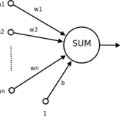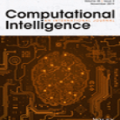Machine learning and computational intelligence technologies gain more and more popularity as possible solution for issues related to the power grid. One of these issues, the power flow calculation, is an iterative method to compute the voltage magnitudes of the power grid's buses from power values. Machine learning and, especially, artificial neural networks were successfully used as surrogates for the power flow calculation. Artificial neural networks highly rely on the quality and size of the training data, but this aspect of the process is apparently often neglected in the works we found. However, since the availability of high quality historical data for power grids is limited, we propose the Correlation Sampling algorithm. We show that this approach is able to cover a larger area of the sampling space compared to different random sampling algorithms from the literature and a copula-based approach, while at the same time inter-dependencies of the inputs are taken into account, which, from the other algorithms, only the copula-based approach does.
翻译:机器学习和计算智能技术作为与电网有关的问题的可能解决办法越来越受欢迎。其中一个问题是电流计算,这是从电值计算电网大客车的电压量的迭代方法。机器学习,特别是人工神经网络成功地用作电流计算代孕。人工神经网络高度依赖培训数据的质量和规模,但是,我们发现的工作往往忽略了这一过程的这一方面。然而,由于电力网获得的高质量历史数据有限,我们提议了互换抽样算法。我们表明,这种方法能够覆盖更大的取样空间面积,而文献和基于合金的方法则有不同的随机抽样算法,同时考虑到投入的相互依存性,而从其他算法来看,只有基于合金的方法。





